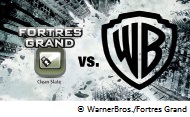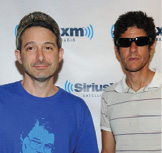
Donald Trump Wants His Name To Be Disremembered
June 1, 2015

Entrepreneur, realty show icon and presidential candidate, Donald Trump, usually wants everyone to know his name. But there’s an exception to every rule. Trump Entertainment Resorts Inc. filed for Chapter 11 bankruptcy protection on September 9, 2014. Trump Entertainment has a license from Trump’s licensing company to use Trump’s trademarks. Prior to the bankruptcy, Trump’s licensing company had filed suit to revoke the license because the alleged mismanagement of the Trump Entertainment’s casinos were reducing the value of the Trump trademarks. Trump’s licensing company asked the bankruptcy court to lift the automatic stay to allow it to proceed with the lawsuit. The parties eventually settled. The debtors were allowed to keep using Trump’s name on one of the casinos.
TAKE AWAY: This item is rich with take aways. First, this is a good example of the protections an intellectual property holding company can give the savvy business owner. By having the holding company own the trademarks and then license them out, the trademarks aren’t assets of a bankruptcy estate or vulnerable to execution to satisfy a judgment. Second, the licensing company was able to use quality control as a basis for cancelling its license due to the poor quality of the licensee’s business. Third, the licensing company can continue to license to others without fear that the value of the license will be compromised by a company that’s circling the drain. This last point doesn’t come up directly in this news item but it’s worth bringing up. Many intellectual property licenses identify the filing of a bankruptcy or bad financial condition as an event of default. These default events are unenforceable in bankruptcy.
CONSUMERS CAN’T CONFUSE A FICTIONAL PRODUCT WITH A REAL ONE

The Seventh Circuit Court of Appeals affirmed the dismissal of a trademark infringement suit brought by Fortes Grand Corporation against Warner Brothers. Fortres Grand alleged that the hacking software in the Batman movie, “The Dark Knight Rises” described as ‘clean slate’ caused customer confusion with its trademark “Clean Slate” for its security program. The real problem here is the assumption on Fortes Grand’s part that the consuming public can’t tell the difference between the description of a fictional software program and a real software program.
TAKE AWAY: Trademark infringement that causes customer confusion can devastate sales and reputation. But, when bringing suit, the realities of a situation should be part of the analysis. For instance, the use of a word in its descriptive sense is not automatically an infringement of a trademark that incorporates that descriptive mark. And a fictional software program is not likely to be confused with a real one.
BEASTIE BOYS SLAY MONSTER

No, this isn’t the title of the next superhero movie or video game. It’s a copyright and trademark case. Monster Energy Co. used portions of five Beastie Boys songs in a promotional video without permission. The employee who created the video testified that he had no background in music licensing. He admitted that no one at Monster tried to contact the Beastie Boys to get permission to use the songs. A jury returned a verdict against Monster for copyright infringement and trademark infringement. The court denied Monster’s motion to set aside the verdict in the amount of $1 million in actual damages and $1.2 million in statutory damages stating, “[a]s the Beastie Boys’ counsel noted in closing argument, Monster, at the time, did not perform any training of employees related to the use of copyrighted or trademarked content; it therefore left [the Monster employee] to his own devices in producing the video.”
TAKE AWAY: The operative question is: Would the outcome have been different if the employee had been properly trained to conduct due diligence and get licenses? Had the proper due diligence been done and permissions obtained, Monster would never have been sued in the first place. Best practices manuals can help. But nothing can substitute for holding training sessions that explain the law and the process for proper licensing. Any business that needs or wants to use someone else’s content, including photos, articles, blog entries, drawings, etc. should remember the lesson learned by Monster (hopefully). On an interesting side note, Monster is infamous for aggressively protecting its own trademark. It has probably filed more oppositions to trademark registrations than any other company.
To discuss how these issues apply to your company contact:
Beverly A. Berneman (312)696-1221, baberneman@golanchristie.com
